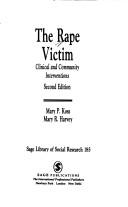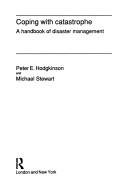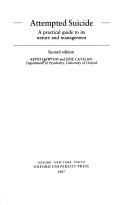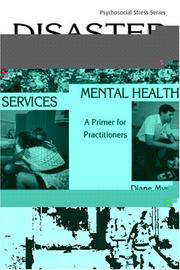| Listing 1 - 10 of 22 | << page >> |
Sort by
|
Book
Year: 2016 Publisher: Frontiers Media SA
Abstract | Keywords | Export | Availability | Bookmark
 Loading...
Loading...Choose an application
- Reference Manager
- EndNote
- RefWorks (Direct export to RefWorks)
Alcohol is the sixth leading risk factor for disability and premature death all over the world, and one of the leading causes of premature mortality in western societies; it is a leading risk factor for death in young and middle-age males. Heavy drinking accounts for about two thirds of the burden of disease attributable to alcohol. In the early 1980s, screening and brief interventions (SBI) in primary health care settings were proposed as effective strategies to identify risky drinkers and to help them reduce their drinking. Since then, a growing body of evidence, including several meta-analysis and Cochrane reviews, has shown the efficacy and effectiveness of SBI in primary health settings. However, demonstrating the effectiveness of SBI has not been insufficient to facilitate its general implementation in the routines of primary health care physicians, and in fact the dissemination of SBI has proven to be a difficult business. Qualitative and quantitative research has identified most of the facilitators and barriers for its implementation, and publicly funded research has been earmarked to address the dissemination problems worldwide. Some examples are the World Health Organization Phase III and Phase IV studies on the identification and management of alcohol-related problems in primary care, EU funded projects (PHEPA, AMPHORA, ODHIN, BISTAIRS), the UK SIPS trials and the SBIRT developments sponsored by the Substance Abuse & Mental Health Services Administration (SAMHSA) in the USA. The efficacy and effectiveness of SBI in primary health is now well established, but there are still some questions that remain unsolved: which practitioners should deliver them; what length should they be; is there a need for booster sessions; is there added value of a motivational approach? These questions, together with other relevant aspects of SBI, need ongoing research. In recent years, SBIs have been tested in settings other than primary health care, including hospitals, accident and emergency rooms, criminal justice, colleges and universities, social services and pharmacies. In some of those areas, the evidence is scarce (for example, pharmacies) while in others it is very promising (for example, students and hospitals). New technologies have also offered the possibility of online tools, and, in the last few years, different digital-based applications have been tested successfully as new ways to deliver effective SBIs to larger amounts of people. Brief interventions have also spread to drugs other than alcohol. This book aims to be an update of the state-of-the art of brief advice. It is a compilation of articles published by some of the most relevant researchers in the field in Frontiers in Psychiatry between 2014 and 2016.
brief intervention --- hazardous drinking --- brief advice --- Alcohol Drinking --- At-risk drinking
Book
Year: 2016 Publisher: Frontiers Media SA
Abstract | Keywords | Export | Availability | Bookmark
 Loading...
Loading...Choose an application
- Reference Manager
- EndNote
- RefWorks (Direct export to RefWorks)
Alcohol is the sixth leading risk factor for disability and premature death all over the world, and one of the leading causes of premature mortality in western societies; it is a leading risk factor for death in young and middle-age males. Heavy drinking accounts for about two thirds of the burden of disease attributable to alcohol. In the early 1980s, screening and brief interventions (SBI) in primary health care settings were proposed as effective strategies to identify risky drinkers and to help them reduce their drinking. Since then, a growing body of evidence, including several meta-analysis and Cochrane reviews, has shown the efficacy and effectiveness of SBI in primary health settings. However, demonstrating the effectiveness of SBI has not been insufficient to facilitate its general implementation in the routines of primary health care physicians, and in fact the dissemination of SBI has proven to be a difficult business. Qualitative and quantitative research has identified most of the facilitators and barriers for its implementation, and publicly funded research has been earmarked to address the dissemination problems worldwide. Some examples are the World Health Organization Phase III and Phase IV studies on the identification and management of alcohol-related problems in primary care, EU funded projects (PHEPA, AMPHORA, ODHIN, BISTAIRS), the UK SIPS trials and the SBIRT developments sponsored by the Substance Abuse & Mental Health Services Administration (SAMHSA) in the USA. The efficacy and effectiveness of SBI in primary health is now well established, but there are still some questions that remain unsolved: which practitioners should deliver them; what length should they be; is there a need for booster sessions; is there added value of a motivational approach? These questions, together with other relevant aspects of SBI, need ongoing research. In recent years, SBIs have been tested in settings other than primary health care, including hospitals, accident and emergency rooms, criminal justice, colleges and universities, social services and pharmacies. In some of those areas, the evidence is scarce (for example, pharmacies) while in others it is very promising (for example, students and hospitals). New technologies have also offered the possibility of online tools, and, in the last few years, different digital-based applications have been tested successfully as new ways to deliver effective SBIs to larger amounts of people. Brief interventions have also spread to drugs other than alcohol. This book aims to be an update of the state-of-the art of brief advice. It is a compilation of articles published by some of the most relevant researchers in the field in Frontiers in Psychiatry between 2014 and 2016.
brief intervention --- hazardous drinking --- brief advice --- Alcohol Drinking --- At-risk drinking
Book
Year: 2016 Publisher: Frontiers Media SA
Abstract | Keywords | Export | Availability | Bookmark
 Loading...
Loading...Choose an application
- Reference Manager
- EndNote
- RefWorks (Direct export to RefWorks)
Alcohol is the sixth leading risk factor for disability and premature death all over the world, and one of the leading causes of premature mortality in western societies; it is a leading risk factor for death in young and middle-age males. Heavy drinking accounts for about two thirds of the burden of disease attributable to alcohol. In the early 1980s, screening and brief interventions (SBI) in primary health care settings were proposed as effective strategies to identify risky drinkers and to help them reduce their drinking. Since then, a growing body of evidence, including several meta-analysis and Cochrane reviews, has shown the efficacy and effectiveness of SBI in primary health settings. However, demonstrating the effectiveness of SBI has not been insufficient to facilitate its general implementation in the routines of primary health care physicians, and in fact the dissemination of SBI has proven to be a difficult business. Qualitative and quantitative research has identified most of the facilitators and barriers for its implementation, and publicly funded research has been earmarked to address the dissemination problems worldwide. Some examples are the World Health Organization Phase III and Phase IV studies on the identification and management of alcohol-related problems in primary care, EU funded projects (PHEPA, AMPHORA, ODHIN, BISTAIRS), the UK SIPS trials and the SBIRT developments sponsored by the Substance Abuse & Mental Health Services Administration (SAMHSA) in the USA. The efficacy and effectiveness of SBI in primary health is now well established, but there are still some questions that remain unsolved: which practitioners should deliver them; what length should they be; is there a need for booster sessions; is there added value of a motivational approach? These questions, together with other relevant aspects of SBI, need ongoing research. In recent years, SBIs have been tested in settings other than primary health care, including hospitals, accident and emergency rooms, criminal justice, colleges and universities, social services and pharmacies. In some of those areas, the evidence is scarce (for example, pharmacies) while in others it is very promising (for example, students and hospitals). New technologies have also offered the possibility of online tools, and, in the last few years, different digital-based applications have been tested successfully as new ways to deliver effective SBIs to larger amounts of people. Brief interventions have also spread to drugs other than alcohol. This book aims to be an update of the state-of-the art of brief advice. It is a compilation of articles published by some of the most relevant researchers in the field in Frontiers in Psychiatry between 2014 and 2016.
brief intervention --- hazardous drinking --- brief advice --- Alcohol Drinking --- At-risk drinking

ISBN: 0669911739 9780669911732 Year: 1974 Publisher: Lexington Heath
Abstract | Keywords | Export | Availability | Bookmark
 Loading...
Loading...Choose an application
- Reference Manager
- EndNote
- RefWorks (Direct export to RefWorks)
Crisis intervention (Mental health services) --- Crisis Intervention. --- Crisis intervention (Psychiatry) --- Emergency mental health services --- Intervention, Crisis (Mental health services) --- Brief psychotherapy --- Mental health services --- Psychiatric emergencies --- Critical Incident Stress Debriefing --- Crisis Interventions --- Intervention, Crisis --- Interventions, Crisis --- Emergencies --- Crisis Intervention --- Brief Advice --- Brief Interventions --- Brief Treatment --- Screening and Brief Intervention --- Advice, Brief --- Brief Intervention --- Brief Treatments --- Intervention, Brief --- Treatment, Brief

ISBN: 0803938950 9780803938953 Year: 1991 Volume: 185 Publisher: Newbury Park Sage
Abstract | Keywords | Export | Availability | Bookmark
 Loading...
Loading...Choose an application
- Reference Manager
- EndNote
- RefWorks (Direct export to RefWorks)
Criminology. Victimology --- Rape --- Rape victims --- Community mental health services --- Community Mental Health Services. --- Crisis Intervention. --- Rape. --- Services for --- Counseling of --- #RBIB:XTOF --- Rapes --- Critical Incident Stress Debriefing --- Crisis Interventions --- Intervention, Crisis --- Interventions, Crisis --- Emergencies --- Assertive Community Treatment --- Health Services, Community Mental --- Services, Community Mental Health --- Services, Mental Health Community --- Mental Health Services, Community --- Community Treatment, Assertive --- Treatment, Assertive Community --- Community Mental Health Services --- Crisis Intervention --- Female rape victims --- Sexual abuse victims --- Brief Advice --- Brief Interventions --- Brief Treatment --- Screening and Brief Intervention --- Advice, Brief --- Brief Intervention --- Brief Treatments --- Intervention, Brief --- Treatment, Brief --- Rape - United States. --- Rape victims - Services for - United States. --- Rape victims - Counseling of - United States. --- Community mental health services - United States.

ISBN: 0415040981 0415040973 Year: 1991 Publisher: London : Routledge,
Abstract | Keywords | Export | Availability | Bookmark
 Loading...
Loading...Choose an application
- Reference Manager
- EndNote
- RefWorks (Direct export to RefWorks)
Emergency management --- Handbooks, manuals, etc --- Crisis Intervention. --- Disaster Planning. --- Disasters. --- Disaster relief --- -Disaster assistance --- Emergency assistance in disasters --- Emergency relief --- Human services --- Natural Disaster --- Natural Disasters --- Disaster --- Disaster, Natural --- Disasters, Natural --- Chernobyl Nuclear Accident --- Disaster Relief Planning --- Disaster Relief Plannings --- Planning, Disaster --- Planning, Disaster Relief --- Plannings, Disaster Relief --- Relief Planning, Disaster --- Relief Plannings, Disaster --- Critical Incident Stress Debriefing --- Crisis Interventions --- Intervention, Crisis --- Interventions, Crisis --- Emergencies --- Management --- -Handbooks, manuals, etc --- -Management --- Crisis Intervention --- Disaster Planning --- Disasters --- Handbooks, manuals, etc. --- Brief Advice --- Brief Interventions --- Brief Treatment --- Screening and Brief Intervention --- Advice, Brief --- Brief Intervention --- Brief Treatments --- Intervention, Brief --- Treatment, Brief

ISBN: 0192615963 Year: 1987 Publisher: Oxford Oxford university press
Abstract | Keywords | Export | Availability | Bookmark
 Loading...
Loading...Choose an application
- Reference Manager
- EndNote
- RefWorks (Direct export to RefWorks)
Brief psychotherapy --- Crisis intervention (Mental health services) --- Suicide --- Crisis Intervention --- Suicide, Attempted --- Crisis intervention (Psychiatry) --- Emergency mental health services --- Intervention, Crisis (Mental health services) --- Mental health services --- Psychiatric emergencies --- Brief therapy (Psychotherapy) --- Psychotherapy, Brief --- Short-term psychotherapy --- Time-limited psychotherapy --- Psychotherapy --- Parasuicide --- Attempted Suicide --- Parasuicides --- Brief Advice --- Brief Interventions --- Brief Treatment --- Critical Incident Stress Debriefing --- Screening and Brief Intervention --- Advice, Brief --- Brief Intervention --- Brief Treatments --- Crisis Interventions --- Intervention, Brief --- Intervention, Crisis --- Treatment, Brief --- Emergencies --- Killing oneself --- Self-killing --- Death --- Right to die --- Prevention of suicide --- Suicide prevention --- Prevention --- Causes --- Social problems --- Social medicine --- Psychiatry

ISBN: 1280100141 9786610100149 0203646908 9780203646908 9781583910641 1583910646 9781583910634 1583910638 1583910638 1583910646 9781135454463 1135454469 9781135454418 1135454418 9781135454456 1135454450 Year: 2005 Publisher: New York, NY : Brunner-Routledge,
Abstract | Keywords | Export | Availability | Bookmark
 Loading...
Loading...Choose an application
- Reference Manager
- EndNote
- RefWorks (Direct export to RefWorks)
Disaster mental health is a growing field of practice designed to help victims and relief workers learn to effectively cope with the extreme stresses they will face in the aftermath of a disaster. The goal of disaster mental health is to prevent the development of long-term, negative psychological consequences, such as PTSD. This book assists clinicians and traumatologists in ""making the bridge"" between their clinical knowledge and skills and the unique, complex, chaotic, and highly political field of disaster. It combines information from a vast reservoir of prior research and literature wi
Disaster victims --- Disasters --- Disaster relief --- Stress Disorders, Traumatic --- Crisis Intervention. --- Emergency Services, Psychiatric --- Survivors --- Self-Help Groups --- Brief Advice --- Brief Interventions --- Brief Treatment --- Critical Incident Stress Debriefing --- Screening and Brief Intervention --- Advice, Brief --- Brief Intervention --- Brief Treatments --- Crisis Interventions --- Intervention, Brief --- Intervention, Crisis --- Treatment, Brief --- Emergencies --- Disaster assistance --- Emergency assistance in disasters --- Emergency relief --- Emergency management --- Human services --- Victims of disasters --- Victims --- Mental health --- Mental health services --- Psychological aspects --- therapy. --- organization & administration. --- psychology. --- Disaster relief. --- Mental health services. --- Mental health. --- Psychological aspects. --- Accompagnement individuel --- État de stress post-traumatique --- Disaster victims - Mental health. --- Disaster victims - Mental health services. --- Disasters - Psychological aspects. --- État de stress post-traumatique --- Catastrophe --- Sequelle --- Terrorisme --- Traumatisme
Book
ISBN: 9026616864 Year: 1980 Publisher: Nijkerk Intro
Abstract | Keywords | Export | Availability | Bookmark
 Loading...
Loading...Choose an application
- Reference Manager
- EndNote
- RefWorks (Direct export to RefWorks)
rouwverwerking --- crisisinterventies --- zelfdoding --- Psychiatry --- Social psychology --- partnerrelaties --- kindermishandeling --- Community Mental Health Services. --- Crisis Intervention. --- Crisis intervention (Mental health services) --- #GROL:SEMI-159.97 --- 364.44 --- #KVHB:Crisisinterventie --- Crisis intervention (Psychiatry) --- Emergency mental health services --- Intervention, Crisis (Mental health services) --- Brief psychotherapy --- Mental health services --- Psychiatric emergencies --- Critical Incident Stress Debriefing --- Crisis Interventions --- Intervention, Crisis --- Interventions, Crisis --- Emergencies --- Assertive Community Treatment --- Health Services, Community Mental --- Services, Community Mental Health --- Services, Mental Health Community --- Mental Health Services, Community --- Community Treatment, Assertive --- Treatment, Assertive Community --- Immateriele hulp aan persoon en gezin. Sociaal medische hulp. Sociaal culturele hulp --sociale zorg --- COMMUNITY MENTAL HEALTH SERVICES --- Crisis intervention --- 364.44 Immateriele hulp aan persoon en gezin. Sociaal medische hulp. Sociaal culturele hulp --sociale zorg --- COMMUNITY MENTAL HEALTH SERVICES. --- Crisis intervention. --- Community mental health services. --- Brief Advice --- Brief Interventions --- Brief Treatment --- Screening and Brief Intervention --- Advice, Brief --- Brief Intervention --- Brief Treatments --- Intervention, Brief --- Treatment, Brief --- Community Mental Health Services --- Crisis Intervention
Periodical
ISSN: 21512396 02275910 Year: 1980 Publisher: Toronto : Seattle, Toronto : C.J. Hogrefe, Hogrefe & Huber Publishers
Abstract | Keywords | Export | Availability | Bookmark
 Loading...
Loading...Choose an application
- Reference Manager
- EndNote
- RefWorks (Direct export to RefWorks)
Crisis intervention (Mental health services) --- Suicide --- Crisis intervention. --- Intervention en situation de crise (Psychiatrie) --- Zelfmoord. --- Crises. --- Preventie. --- Psychiatrische patiënten. --- Prevention --- prevention & control. --- Prevention. --- Prevention of suicide --- Crisis intervention (Psychiatry) --- Emergency mental health services --- Intervention, Crisis (Mental health services) --- Critical Incident Stress Debriefing --- Crisis Interventions --- Intervention, Crisis --- Interventions, Crisis --- Killing oneself --- Self-killing --- Crisis intervention --- prevention & control --- Suicides --- Death --- Emergencies --- Brief psychotherapy --- Mental health services --- Psychiatric emergencies --- Right to die --- Causes --- Crisis Intervention. --- Brief Advice --- Brief Interventions --- Brief Treatment --- Screening and Brief Intervention --- Advice, Brief --- Brief Intervention --- Brief Treatments --- Intervention, Brief --- Treatment, Brief --- Crisis Intervention --- Prévention --- Prévention. --- Suicide prevention --- Suicide. --- Intervention en situation de crise (Santé mentale) --- Suicide Awareness --- Awareness, Suicide --- Prevention, Suicide --- Suicide Preventions
| Listing 1 - 10 of 22 | << page >> |
Sort by
|

 Search
Search Feedback
Feedback About
About Help
Help News
News